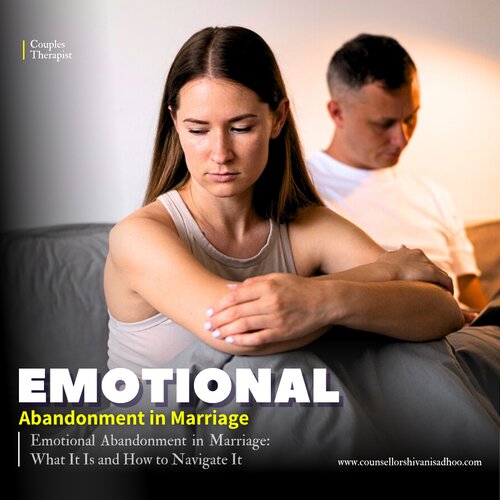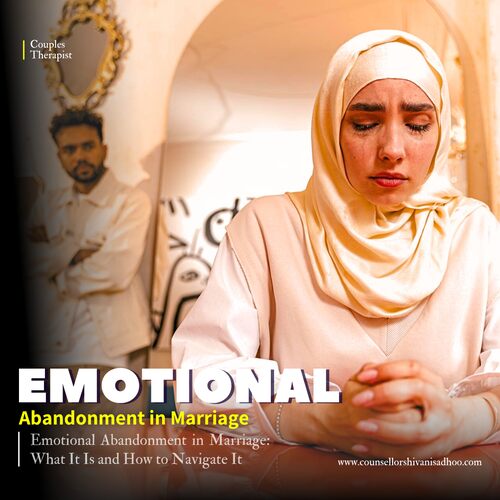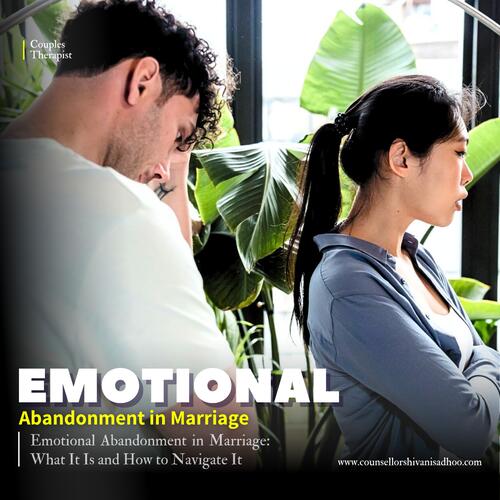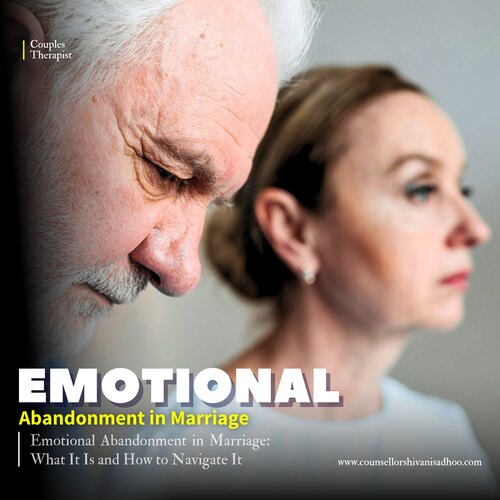When two people fall in love, what’s the first thing that connects them?
Is it the mind — where curiosity turns into comfort, where a stranger begins to feel familiar long before the heart catches up? Or is it that unexplainable physical pull that draws you closer before you even know why?
Honestly, it’s often our minds that meet first. Our emotions translate what words can’t — that quiet spark of recognition when a thought mirrors your own, when laughter feels shared rather than offered, when silence doesn’t demand filling. That’s the magic, isn’t it? Two minds leaning toward each other long before the souls follow and the hearts understand what’s unfolding.
But what happens when that same person — the one who once understood your pauses and lit up your brightest thoughts — turns distant? When warmth turns to indifference, and the shared language of love fades into one-word replies? When the home you built together feels more like a waiting room where no one calls your name?
Yes, we are talking about Emotional Abandonment — what it really is, and how to walk through it without losing yourself says Shivani Misri Sadhoo who is one of the most experienced couples therapist in Delhi, India.
What is Emotional Abandonment?
Sometimes, even in a marriage that is built on trust, communication, patience, and more importantly love, life has a way of making people drift without realizing it. Work pressure, family duties, the everyday hustle and bustle — they all add up, and slowly, two people who once felt like they were in a “made-for-each-other” kind of relationship become emotionally alien to each other. Then there are times when the emotional disconnect isn’t transient. The person who loved you so much, stops caring about your feelings.
There is a great wall of silence that rises between you and your spouse. And, even though you’re under the same roof, it feels like you’re worlds apart — sharing space, but not a life. You feel unheard, unseen, almost invisible in a space that was once safe. Over time, that emotional gap turns into isolation and deep loneliness. This isn’t just distance — it’s emotional abandonment, a painful place where support fades, connection breaks down, and love feels like it’s there in name but missing in presence. It can happen over the years or all of a sudden. But whenever it happens, it hurts!
Why Does It Happen?
Some of the reasons this happens are:
Too Busy
We are living in an era where life spins endlessly in the orbit of busyness — where married couples, caught in the rush, slowly drift apart, and emotional abandonment takes root in the silence between them. Initially, they try to make it up by going for a late night coffee date or a weekend plan. But as time goes by, those gestures become band-aids on widening cracks. The late-night coffees turn into hurried takeaways, weekend plans become postponed promises, and conversations shrink into logistics — bills, schedules, responsibilities. What once felt like partnership now feels like parallel lives: two people moving in the same space yet rarely meeting in spirit. This takes a heavy toll on their emotional landscape-a slow erosion rather than a sudden collapse.
Negative Experiences of Childhood
Sometimes, childhood experiences like neglect, abuse, or losing a caregiver can quietly shape how we love later in life. These can unknowingly lead to feelings of distrust, fear of getting hurt, and anxiety around closeness. A person may cling when they feel insecure or pull away to protect themselves. Without meaning to, they may create distance in the relationships they care about most, wanting connection but struggling to feel safe in it.
Money Matters
Sometimes constant financial stress and job insecurity can quietly strain a relationship. Your mind is more focused on solving financial problems and hence there is no room for emotional attachment. As time goes by, this constant state of worry takes a toll on their emotional relationship. When that happens, feelings of neglect and abandonment grow.
Personality Mismatch
One more reason for emotional abandonment comes from differences in personality. Some people are naturally introverted and prefer space, quiet, and time alone to recharge. Others are more expressive and seek frequent emotional connection. When these needs don’t match, misunderstandings grow. The introverted person may feel overwhelmed, while the other feels ignored or unloved. Over time, this gap in communication and emotional style can quietly push partners apart, creating distance without anyone meaning to.
Is there a solution to this problem? Let’s find out.
Ways To navigate emotional abandonment
Recognise The Problem
The first step should be to recognise the problem. There is no point dilly-dallying when you already feel the distance creeping in and hurting your relationship. Don’t you want to feel close and happy again? So go ahead and acknowledge that this emotional detachment is slowly building walls between you both. Once you name it, you can face it, talk honestly, and slowly reconnect instead of drifting apart.
Communication is Key
Communicate. Real communication is a two-way flow — you listen, you speak honestly, and you face what hurts instead of running from it. The more you talk, the lighter you feel, because sharing loosens the weight you’ve been carrying inside. Emotional abandonment begins to heal when two partners stay present, open up, and keep showing up with truth and patience. If you don’t express what’s hurting you inside, how will your partner ever know? Speak, release the unspoken, and let honesty bring you back to each other.
The Magic of Time
They say time is the greatest healer, so give it the space it needs. When you and your spouse feel emotionally detached, be patient and gentle with yourselves. Take it slow, stay steady in your efforts, and keep showing up even when progress feels small. Miracles do not happen overnight; time and steady intention soften wounds, rebuild trust, and slowly revive connection. With patience, honest effort, and a calm heart, emotional abandonment in marriage can gradually give way to closeness once again.
Spend Quality Time Together
Try giving sweet surprises to your better half. Plan a weekend trip to the place where you first met and relive those precious moments. You could also try something new together, like a fun activity or a creative workshop you both enjoy. The whole idea is to spend real quality time together—switch off your phone, disconnect from the outside world, and reconnect with each other. These simple efforts strengthen your emotional bond by reminding you both that love is not just spoken but shown through presence and intention.
Professional Guidance Helps
Sometimes professional guidance truly helps. A third person can counsel you in a neutral manner, seeing the situation from an outside perspective without judgment. A therapist or marriage counsellor uses specific tools and techniques to address the issues that are emotionally hurting both partners. Their support creates a safe space to express feelings, understand unmet needs, and rebuild trust. This process is especially helpful for healing emotional abandonment in a marriage, as it encourages reconnection, healthy communication, and renewed emotional presence.
Life is full of surprises — some lift us, some test us. Emotional distance can feel heavy, but it’s not the final chapter. When we notice the disconnect, speak openly, give time, create meaningful moments, and seek guidance when needed, love finds its way back. Healing begins when both hearts choose to stay present.


























